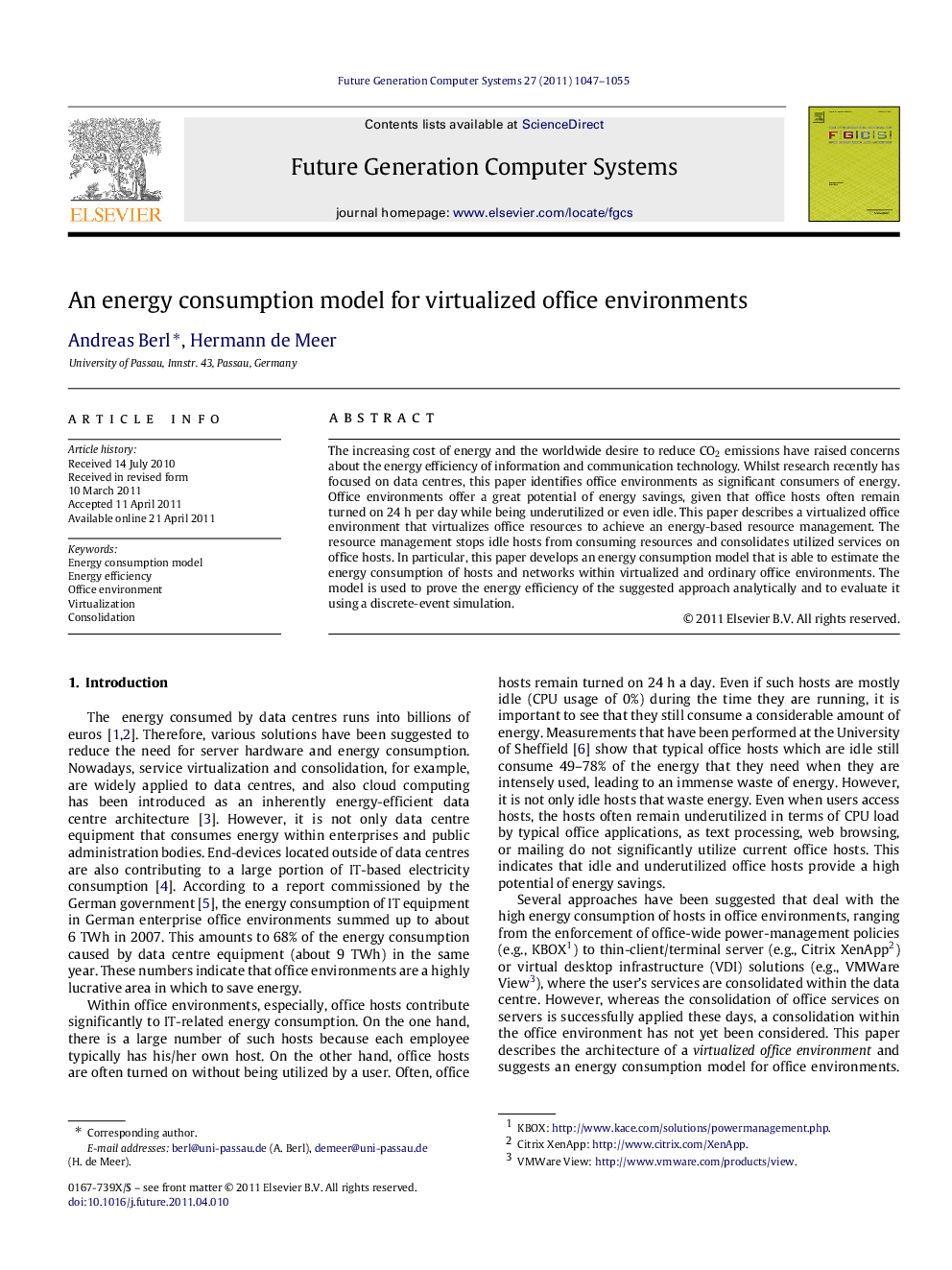| Article ID | Journal | Published Year | Pages | File Type |
|---|---|---|---|---|
| 425706 | Future Generation Computer Systems | 2011 | 9 Pages |
The increasing cost of energy and the worldwide desire to reduce CO2 emissions have raised concerns about the energy efficiency of information and communication technology. Whilst research recently has focused on data centres, this paper identifies office environments as significant consumers of energy. Office environments offer a great potential of energy savings, given that office hosts often remain turned on 24 h per day while being underutilized or even idle. This paper describes a virtualized office environment that virtualizes office resources to achieve an energy-based resource management. The resource management stops idle hosts from consuming resources and consolidates utilized services on office hosts. In particular, this paper develops an energy consumption model that is able to estimate the energy consumption of hosts and networks within virtualized and ordinary office environments. The model is used to prove the energy efficiency of the suggested approach analytically and to evaluate it using a discrete-event simulation.
► We consider an office architecture based on system virtualization and P2P overlays. ► We suggest consolidation and management of office services. ► We propose an energy consumption model for office environments.
